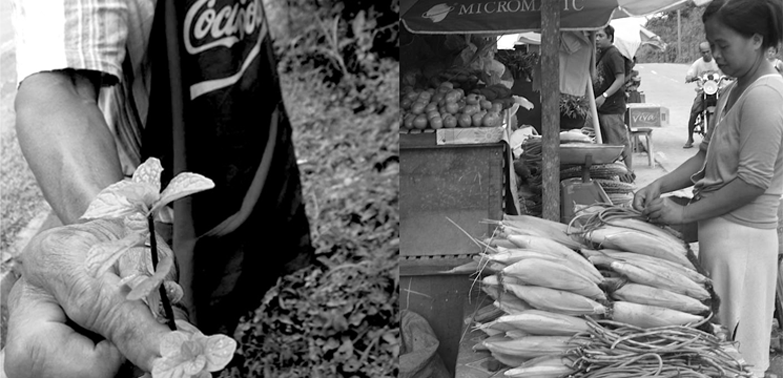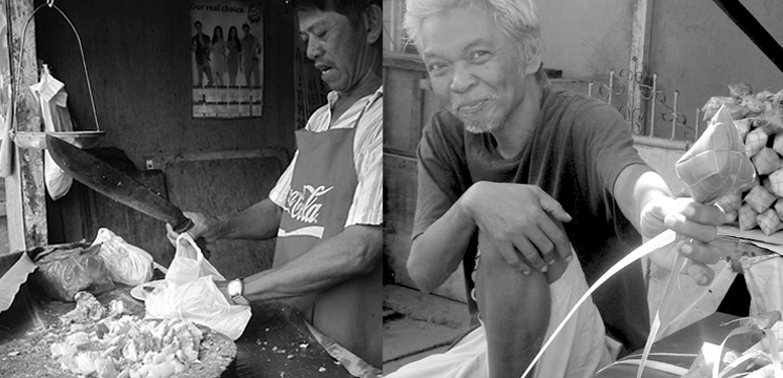
Filipino Cuisine
No matter what one person does, where a person goes, he or she will always be a biological legacy of his/her country of birth. Lock a Euro or America born Asian in a room for a month with no food from his/her home country and you’ll find that person craving. We have friends and relatives in NY who yearn for a good downhome Dinuguan or Puso and Ngo Hiong. We have US friends in Manila who is now sick and tired of eating Rice and will kill for a good plate of Shrimp and Grits.
When I started cooking professionally, it was Italian cuisine to rote and master. The Swiss Chefs that I worked for opened other restaurants where I learned from a lot. An international steakhouse, a Vinotheque that serves two international dishes per day, a Tapas Bar, another Italian restaurant, and more international food outlets. I had to learn and be comfortable with those cuisines. Especially the “mother” cuisine of the company, which was Swiss. I still love and miss Swiss food every now and then. But after cooking American, European, Japanese, Chinese, Indian, Mexican and other cuisines, I asked myself one day “Why am I cooking other people’s foods? Shouldn’t I be cooking my country’s cuisine, paying respect to regional grandmother and plebeian food and ingredients? Elevating them to a contemporary and global platform?”

Local Ingredients
Local ingredients especially those in season are nonpareil. Matchless. Quality and freshness is at its peak. Easily accessible, cost-effective, menu-friendly. Local ingredients does not mean poor quality. There is nothing pedestrian about it. It is all about the approach to it, the application, the process and treatment. Treat it with respect, and it will come out as thus, respectable and honorable. Why buy and use canned and frozen products when one has access to a year-round supply of the best fruits in the world?

Produce
I am not a vegetarian. I do love it, and will cook and consume it. One of the directions here for me is that, why would vegetarians and vegans, eat just Tofu when there are in fact more than 20,000 varieties, species of edible plants on this planet? Why go for imported and expensive varieties of vegetables, just because they’re trendy or popular, when there’re thousands of beautiful plants, leaves, seeds, root crops, stems, etc. in your home country? Grown and purveyed in your local wet market? Or better yet, in your home garden?
It doesn’t matter how you cook our vegetables, or if you even cook it at all. Raw is good. It is anti-cancer and is very low in calories. Conservative cooking does not make a vegetable lose its nutrients. Asians barely cook it (stir-fried etc.), while traditional Italians cook it until soggy. It is a cultural thing.

Support Small Businesses
Small businesses mean passion, love and self-sacrifice. Sometimes, it is about upholding generations-old traditions and legacies. I used to be bent on trying out all the Michelin starred restaurants. I did. And then I started going back to the roots of it all. The grandmothers, the hundreds or decades old small restaurants in quaint towns, the carenderias along the roads where cabbies nosh on their favourites. These are the roots of cuisine and gastronomy. The common eateries and regional household cuisines. They open eateries and small shops and the results are fantastic and natural. No GMOs, mostly. It is similar to coming from an utter fascination of classic rock, to going back to the Blues. It is all good. Instead of spending time, money and tummy-space on the foods that fancy restaurants serve in the topnotch commercial districts, I opt every week to go to Binondo, Sta. Cruz and Quiapo. There are restaurants there who’ve been open since 1888, serving beautiful heritage food for just $2 or less. I’d rather support a small family-owned legacy than a multi-billion restaurant franchise chain, wouldn’t you too?

Unschooled Talents
When the first few culinary schools opened in the country, they were expensive. Very expensive. Only the ultra-rich could afford it. At that time, culinary schools were the “second chances” of spoiled rich kids who flunked or wasted every degree and course in a regular university. A culinary degree was a career cushion. Parents too, wanted to be able to chat with their socialite friends during home parties that it was their son or daughter who made all the food as she or he was a “chef”. I have nothing against culinary schools. They are very important, as they provide the rules and the basics. I used to teach in at three schools.
However, the backbone of this country’s food industry are still the unschooled talents who slave away in the deep-frying section, the butchery, the wok station etc., who has been toiling in the same position for decades. Without any dream of making it big, or getting to an executive chef position. They have no egos. They have pride in their work, though. They’ve learnt and perfected it through route, through endless burns and cuts. They only started their so-called careers, nay, jobs, because it was just a way to feed their families and pay the bills. But without them, the restaurant will suffer and maybe even crash. How many hundreds of thousands (perhaps millions?) of these unsung heroes do we have? They are the ones we should be promoting and giving scholarships to.
